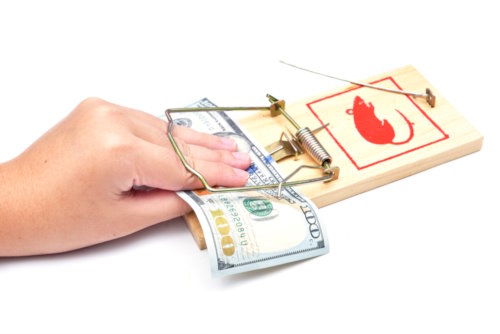Third Party Claims occur when the Creditor goes after debtor property (usually through a levy), and a non-debtor third party intervenes, claiming in essence that, the property the creditor is pursuing belongs to the third party, and not the debtor, and the Creditor must release the property. Third Party Claims are governed by C.C.P. 720.10 et seq., a statutory scheme which lends itself to many pitfalls, as well as fraud and abuse by debtors and debtor “friendlies” (Typical Example, Debtor has JOINT ACCOUNT with a family member or spouse, but all the money is debtors business income, but when the money is levied, the spouse or family member comes in claiming the money belongs to them, and them only)

Less common, but far more dangerous and difficult than exemption claims, here are a few important things to remember about third party claims:
Third Party Claims happen on highly expedited timelines/deadlines and require a bond to prevent the property from being released immediately. Blowing these requirements means the property gets released automatically.
Creditor must do the following, in order to prevent the property from being automatically released back to debtor/third party:
*File an opposition to the claim on a short timeframe; (C.C.P. 720.310)
*Post a bond for at least $10,000, or the value of the property at issue, which ever is smaller (C.C.P. 720.160)
*Calendar a hearing on the Third party Claim, which hearing must occur within 20 days of the filing date of the creditors opposition C.C.P. 720.310(c)
Failure to do these things means the property gets automatically released. Creditor can still oppose the claim, and if they win, technically, the third party claimant is supposed to them give the property back to the creditor. But good luck with ever seeing the property again, if the property gets released back into the hands of the debtor and the debtors cronies.
Creditor can be liable for attorneys fees and damages to third party, if third party claimant wins: Be really careful when pursuing these.
Pursuant to the Bond and Undertaking Law, a prevailing third party claimant can pursue a creditor for attorneys fees and damages resulting from the Creditor levying on property that later turned out to belong to someone else.
The Good News: Third Party Claimant Always has the Burden of Proof.
There isn’t much good news about a third party claim for a creditor. But, at least the third party claimant has the burden of proving the third party claim. (C.C.P 720.360). Oftentimes, fraudulent claimants cannot properly even meet their burden out the gate.
Creditor is not entitled to discovery on Third Party Claims: have your ducks in a row first, if you are expecting a third party claim.
Even though a third party claim is essentially a hearing to determine if a third party owns property or if a debtor owns it, Creditor does not have right to do any discovery in connection with the hearing. A court may allow discovery, but there is no guarantee. This means that a creditor, if they have any reason to suspect a third party claim is possible, should do the necessary discovery prior to levying the property and triggering the claim. But of course, discovery tips the debtor off, and then assets can disappear into thin air. This puts creditors between a rock and a hard place.
The upshot: Third Party Claims are tricky, and you should probably hire a judgment collection law firm if there is any hint of one.
There are aspects of collection that can be a Do-It-Yourself project for a creditor or attorney unfamiliar with judgment enforcement law (e.g. Debtor exams, simple exemption claims, levies/liens, etc). But third party claims are not this.
Los Angeles Collection Attorneys since 2011, The Evanns Collection Law Firm has been enforcing judgments for years, and has plenty of experience with these issues, and knows the ins and outs of the sticky procedures. Phone calls are always free and no obligation. Call now at 213-292-6888.

